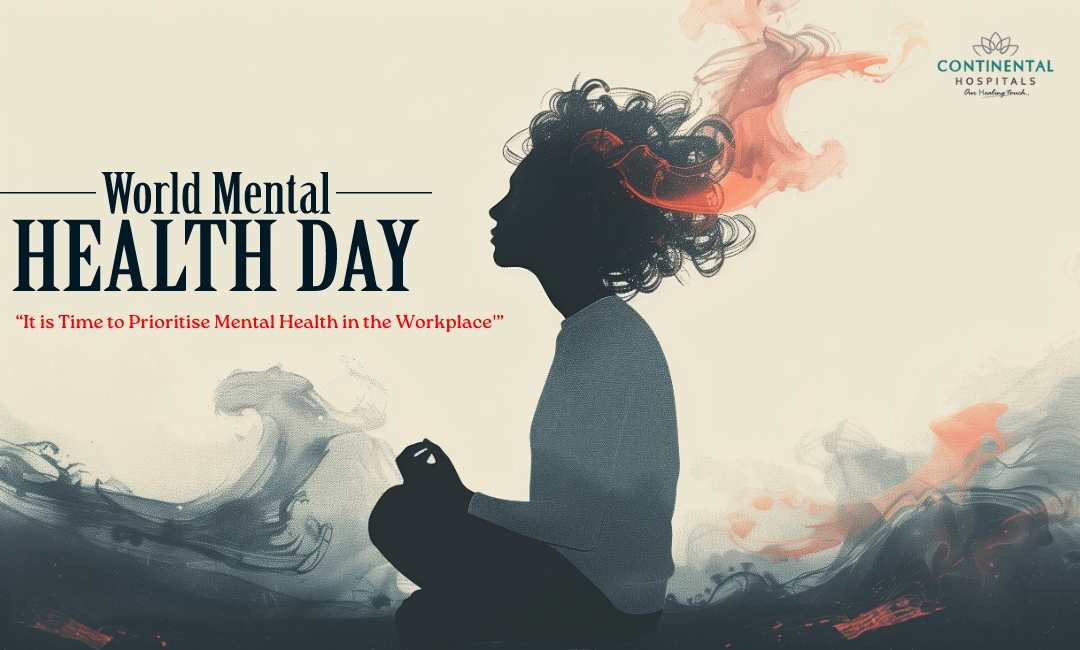World Mental Health Day, observed annually on October 10th, brings attention to the importance of mental well-being. This year, the theme—"It is Time to Prioritize Mental Health in the Workplace"—highlights the urgent need for businesses to create environments that foster mental health. Mental health in the workplace has become a growing concern as more individuals experience stress, anxiety, and depression due to work-related pressures. Addressing this issue not only benefits employees but also enhances organizational productivity and culture.
In today’s fast-paced world, where workplace demands continue to rise, prioritizing mental health in professional settings is crucial. Stress, burnout, and mental health challenges are at an all-time high, making it essential for employers and employees to foster healthy work environments.
Growing Importance of Mental Health in the Workplace
The workplace plays a significant role in an individual's mental health. With long hours, tight deadlines, and increasing demands, employees often find themselves overwhelmed. In fact, according to the World Health Organization (WHO), depression and anxiety cost the global economy an estimated $1 trillion per year in lost productivity. These numbers show the direct link between mental health and workplace performance.
Rise of Workplace Stress and Burnout
Workplace stress has risen sharply in recent years. Several factors contribute to this trend, including:
Increased workloads: Many companies expect more output with fewer resources.
Technological advances: Employees are now reachable 24/7, leading to a blurred work-life balance.
Remote work challenges: Although remote work offers flexibility, it can also create isolation and a sense of disconnect.
Job insecurity: Economic uncertainty has led to concerns about job stability, which impacts mental well-being.
These stressors not only impact individual employees but also affect organizational success. Employees experiencing stress and burnout are more likely to be less engaged, leading to higher absenteeism and turnover rates.
Impact of Ignoring Mental Health at Work
Neglecting mental health in the workplace can have severe consequences for both employees and businesses. When mental health is not prioritized, employees may face challenges such as:
Decreased productivity: Mental health struggles often result in reduced focus and performance.
Increased absenteeism: Employees may take more time off work due to stress-related issues.
Higher turnover: Workers are more likely to leave jobs that contribute to poor mental health.
Negative work culture: A lack of support for mental health can create a toxic environment where employees feel undervalued and stressed.
How Employers Can Prioritize Mental Health in the Workplace
Prioritizing mental health requires a proactive approach from employers. Here are several key strategies to help create a mentally healthy workplace:
Create Open Conversations About Mental Health
One of the biggest barriers to addressing mental health in the workplace is the stigma associated with it. Employers must foster an open dialogue about mental health, encouraging employees to share their challenges without fear of judgment or repercussions.
How to implement:
- Conduct workshops and awareness sessions to reduce the stigma around mental health.
- Encourage leaders and managers to discuss their own mental health experiences.
- Create channels for anonymous feedback or sharing mental health concerns.
Implement Employee Assistance Programs (EAPs)
EAPs offer employees access to professional mental health resources, including counseling and therapy. These programs provide employees with the tools they need to cope with stress, anxiety, and other challenges.
How to implement:
- Partner with mental health professionals to offer counseling services.
- Provide digital mental health platforms for remote workers.
- Regularly promote the availability of these resources to all employees.
Promote Work-Life Balance
A poor work-life balance is a major contributor to workplace stress. Employers must encourage employees to take breaks, set boundaries, and disconnect from work during non-working hours.
How to implement:
- Establish flexible working hours to accommodate personal responsibilities.
- Encourage employees to take regular breaks and vacations.
- Discourage after-hours communication, ensuring employees are not expected to respond to work-related messages outside of working hours.
Train Managers to Recognize Mental Health Warning Signs
Managers play a crucial role in supporting employee mental health. They need to be trained to recognize signs of mental health issues and respond appropriately.
How to implement:
- Provide training on how to identify symptoms of stress, anxiety, and burnout.
- Encourage managers to check in regularly with team members to assess their well-being.
- Develop protocols for managers to follow when an employee discloses a mental health concern.
Foster a Positive Work Environment
A positive work environment promotes teamwork, collaboration, and respect, which can help mitigate stress and improve mental well-being. Creating a supportive culture where employees feel valued is essential.
How to implement:
- Celebrate team achievements and individual contributions.
- Promote inclusivity and diversity to ensure all employees feel welcome.
- Create opportunities for social interactions, such as team-building activities or wellness days.
Conclusion
World Mental Health Day 2024's theme, "It is Time to Prioritize Mental Health in the Workplace," underscores the growing need for mental health support in professional environments. The mental health crisis in the workplace can no longer be ignored. Both employers and employees must work together to create a mentally healthy environment, where well-being is prioritized and supported.
Related Blog Article-
1. Balancing Work and Life in the Digital Era
2. Healthy Eating in the Age of Food Delivery Apps
3. Digital Detox: Reclaiming Your Life from Technology
.webp)







